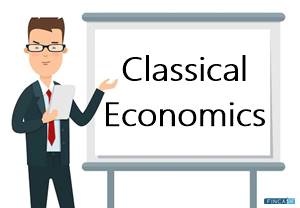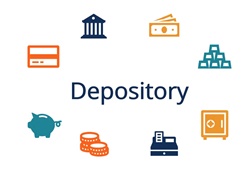
Table of Contents
Defining Classical Economics
Classical Economics usually referred to as liberal economics, rose to prominence in the 18th and 19th centuries. French physiocrats and Spanish scholastics both contributed to this school of thought. While Adam Smith is the well-known creator of this theory, there were other contributors to this theory as well, such as David Ricardo, Thomas Malthus, Anne Robert Jacques Turgot, John Stuart Mill, Jean-Baptiste Say, and Eugen B. von Bawerk.

According to classical economics, a self-regulating Economy is the most effective and prosperous because people adapt to one another's needs as they change. As per the traditional economic theory, government involvement is not essential since citizens of the economy would efficiently allocate limited resources to meet the needs of people and businesses.
Classical Economics Example
Let's take the example of Israel, which has emerged as a prime illustration of how adhering to fundamental principles of the traditional economic model generates economic development. They supported a knowledge economy and free Market. Being one of the top 25 richest nations in the world was made possible by economic liberalization and significant investments in the technology Industry.
Benefits of Classical Economics
The theory sparked the creation of the neoclassical and modern theories, which considered various variables impacting an economy. As a result, Capitalism was further developed, and commerce began to be used to gauge an economy's Efficiency rather than stockpiling gold.
Talk to our investment specialist
Application of Classical Economics
The growth of classical economics paved the way for the creation of market pricing determinants, like the Law of Supply and Demand. Even though the government's participation in commerce made the theory unpopular at its inception, many of its promoted ideas are still in use today.
Modern economists, however, support the idea of balancing price control. Government involvement in trade, particularly global commerce, cannot be understated, and the classical paradigm is less relevant now.
Assumptions of Classical Economics
The following assumptions form the foundation of the classical theory of production and employment:
- The nation's economy will prosper if society allows people to follow their interests, especially by eschewing class-based social systems and favouring meritocracies
- Economic development would be aided by unrestricted competition and free trade, free of government interference or regulation
- The inherent laws of production and exchange serve as the Basis for self-regulating a free-market capitalist economic system
- The Law of Supply and demand provides the potential of the business cycle to self-regulate. It promotes a Laissez-Faire system in which the government has little say in determining the economy's direction
- Smith argued that a country's wealth is defined by its national Income rather than the gold in its monarch's vaults
- An orderly system of economic cooperation characterized by economic players working together to fulfil one another's needs would progressively replace the turmoil caused by competitive selling and buying
Criticisms of Classical Economics
In his General Theory, Keynes strongly criticized the classical theory of employment for making unreasonable assumptions:
- Classical economists had contradictory theories, notions, and statements—particularly regarding their views or perceptions of markets
- Keynes emphasized that free-market, capitalist economic systems are nevertheless vulnerable to underconsumption and underspending
- Contrary to Keynesian economics, classical economics could not explain the Great Depression. Additionally, it did not offer any suggestions for easing economic downturns
- Marxian economics, which supports capitalism and free competition, and the accompanying ideologies of socialism and communism are in opposition to established economic concepts
- Keynesians support promoting and then putting into practice economic policies that involve government involvement in the economy
Classical Economics vs Keynesian
There are two schools of thought that define economics differently: classical economics and Keynesian economics. Famous Economist Adam Smith created classical economics, while economist John Maynard Keynes founded Keynesian economics. According to classical economic theory, a self-regulating economy is the most effective and efficient because as needs change, individuals adapt to meet those needs. The Keynesian school of thinking holds that for an economy to flourish, government involvement is necessary.
The Bottom Line
Classical economics, indeed, is one of the greatest intellectual achievements. Many aspects of modern economic theory still build on the foundation laid down by classical economists, including monetary and trade theory, to name just two. This is true even though new analysis techniques were required to address novel problems, leading to the mathematical formulations of the neoclassical and others. It is also true, even though it appears that changes in social awareness and technological advancements have altered the economic landscape.
All efforts have been made to ensure the information provided here is accurate. However, no guarantees are made regarding correctness of data. Please verify with scheme information document before making any investment.












